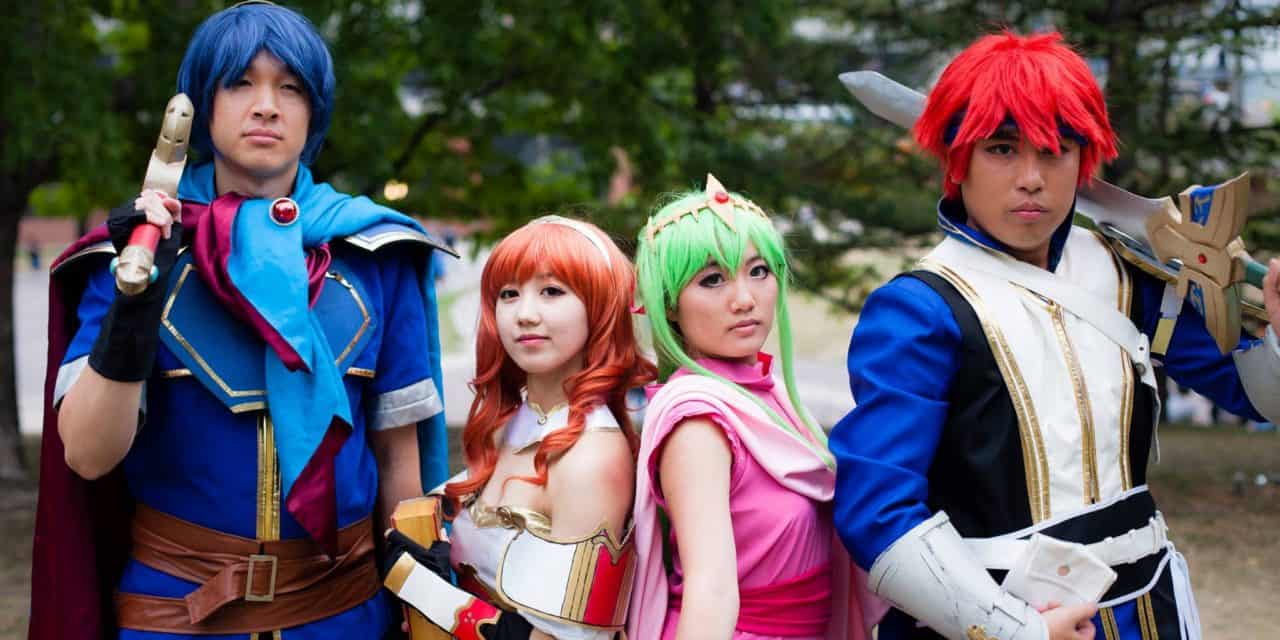Oh Cosplay Community! If you’ve been cosplaying for a while, then I’m sure you already have your own opinions about the community. But if you’re new, you’re probably wondering if all those bad and crazy rumours are true. Well, you’ll be surprised to learn about the Cosplay Community in this article.
In this post, I’ll go through 10 facts about the Cosplay Community you should know about! I’ll be using my own experience I know, as well as scientific studies to lay down some facts about cosplay and the associated community. Let’s get started.
1. What is the Cosplay Community?
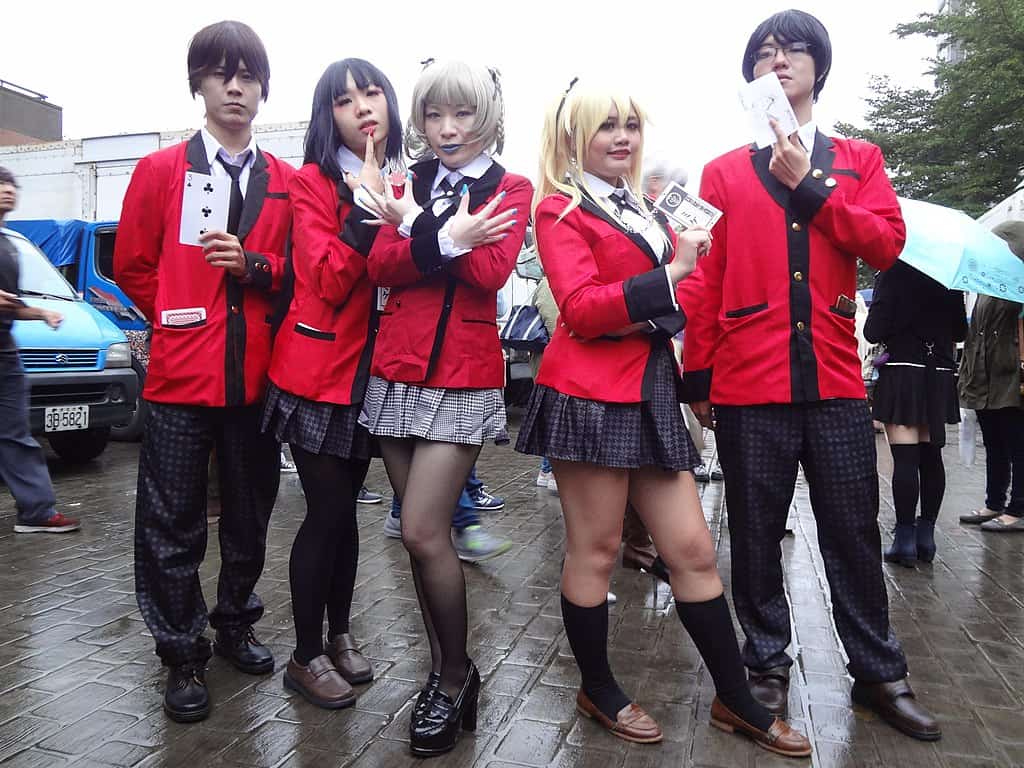
The Cosplay Community is the group of people involved with the hobby. This can include the cosplayers themselves, photographers, convention organizers, models, make-up artists, or your typical Weeb or Otaku. If you are involved in cosplay and take part in any discussion online or in-person, then you are technically part of the Cosplay Community!
There are tons of diverse people in the Cosplay Community. With such a large community, you could argue that cosplay is its own subculture (Crawford G., Hancock D. (2019) Cosplay as Subculture. In: Cosplay and the Art of Play. Leisure Studies in a Global Era. Palgrave Macmillan, Cham. https://doi.org/10.1007/978-3-030-15966-5_4).
2. Is the Cosplay Community toxic?
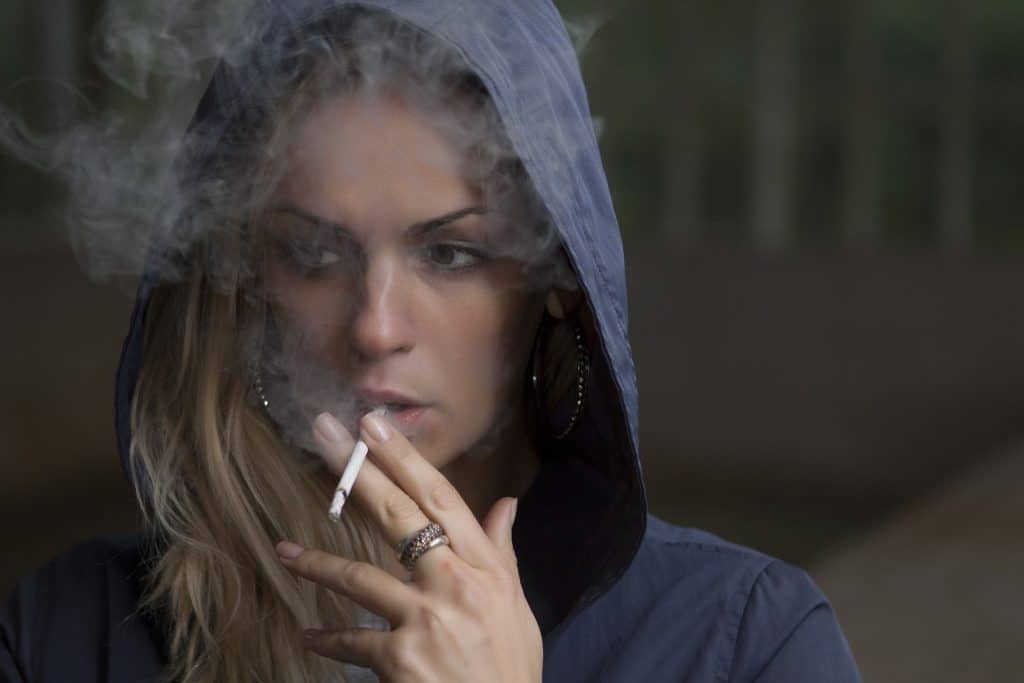
I’m sure you clicked on this post to get an answer to this question!
The truth is, it’s complicated.
At some point, you wondered if the Cosplay Community is worth joining. After all, you’ve heard all the drama and toxicity about it.
Is the Cosplay Community toxic? It would be a disservice if I sugarcoated things and said there aren’t any toxic people. A lot of issues plague the community, including: gatekeeping (“You can’t cosplay that character!”), Body shaming, harassment, and bullying.
A huge issue in the Cosplay Community is sexism. Women are often the target of harassment and judgment. In a study about fandom communities in the U.S., when it comes to nerdy things,
“Often women are excluded, or their authenticity is questioned more than men in nerd fandom. Female cosplayers are believed to be attention seekers and not “true” fans or to be the significant other of a male fan. This is comparable to female sport fans.
Hill, Natasha L. “Embodying cosplay: Fandom communities in the USA.” (2017).
But that doesn’t mean everyone is toxic. In fact, there are some amazing people in the Cosplay Community. Later on in this article, I’ll share how awesome the Cosplay Community can be!
3. The Cosplay Community is VERY diverse
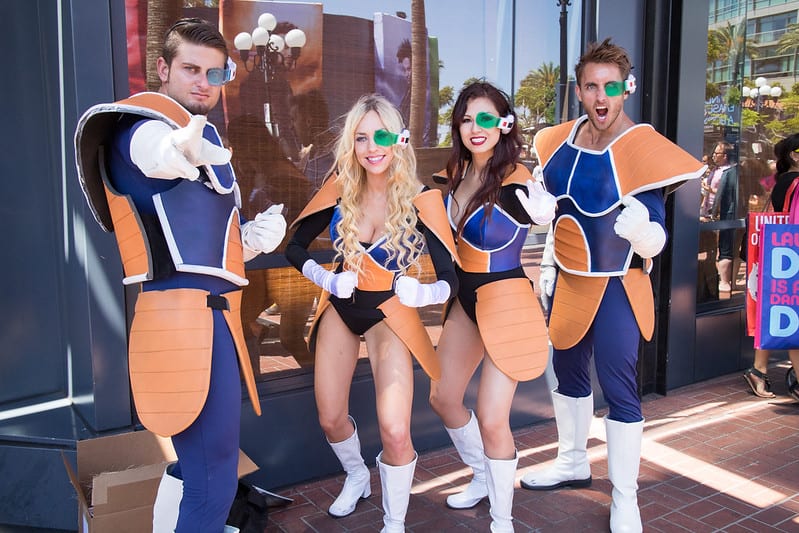
If you’re new to cosplay, you might think all the attendees are just a bunch of basement dwellers dressing up in nerdy-ass costumes. That’s not the case at all. The people in the Cosplay Community are incredibly diverse and talented.
I’ve attended a bunch of cons and have run cosplay events myself. So I’ve had the opportunity to meet all sorts of people in the community, including:
- Professional Photographers
- Nurses
- Doctors
- Tool and Die Maker
- Computer engineers
- Journalists
- Professional Models
- Graphic Designers
- Videographers
- Veterinarian
- Teachers
- Bar Hostess
- College and High School Students
- Construction Managers
- Fitness Instructor
- Race Car Driver (I’m serious!)
- YouTube Personality
- Oil Engineer Technician
- Band Vocalist
- Hairstylist
- Bank Teller
- BB Gun Manufacturer
- Full time DJ
- Accountant
- Sci-Fi Bar Owner
- Automotive Technician
- Freelance Programmer
- Equestrian/Horseback Rider
- Armed Forces
- Hotel Worker
- Day Care Attendant
- eSports Manager
All of these occupations/hobbies are done by cosplayers that I’ve met in real life. So while we may all love Goku and ramen, we all come from a HUGE variety of backgrounds.
Personally, I’ve learned a lot from cosplayers based on their backgrounds. The Race Car Driver taught me a lot about how cars operate, and how to deal with the problems I have with my own car. The Tool and Die Maker is also very computer-savvy, and he’s taught me a lot about optimizing computer hardware for my own uses. The hotel worker taught me about how hotels operate, so I keep in mind about those things when I book hotels for Anime conventions. The graphic designers made logos for me for free! And so on.
Anyways, I never expected any of these people to help me, but they wanted to. And that’s what’s great about the Cosplay Community; if you treat people well and offer value, they’re more than willing to help you out as well. And as I exemplified, there are a lot of talent and diverse people in the community.
4. We bring in the cash!
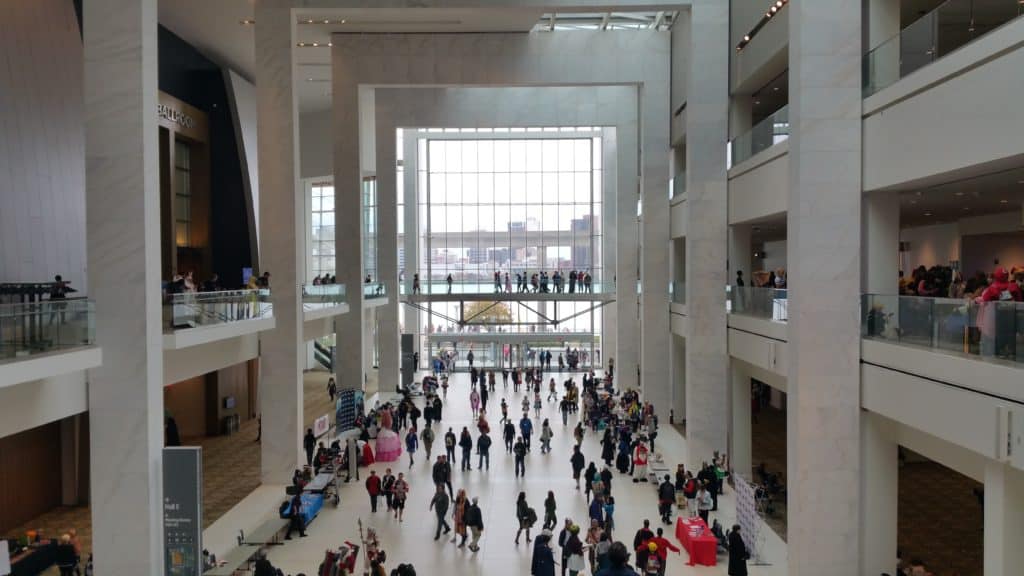
A lot of people may be unaware of this, but we cosplayers are BIG business. Especially Anime conventions. Think about it. A large Anime convention with 20,000+ attendees is a huge economic boost for the city or area. The convention centre and the municipal government make money. The hotels that attendees stay in make money. The restaurants, bars and other nearby venues benefit from the extra customers they get for the entire weekend. News media have something to talk about during the weekend. Transportation like airports, public transit and taxis make extra revenue.
Just like when Brock Lesnar shows up for a WWE wrestling event; when cosplayers are in town, we bring in the money! Just ask cities like Atlanta, Boston, Los Angeles, Milwaukee, and Montreal. In the case of Anime Expo, the convention apparently generates $55 million a year for LA. That’s a lot of money. And according to a study conducted by Eventbrite, 70% of cosplayers spend at least $100 when they attend a convention.
Maybe in the future, local politicians and venue owners from various cities will be the ones proposing conventions to con chairs, rather than the other way around. The Cosplay Community is BIG business!
5. We Take Care of Each Other
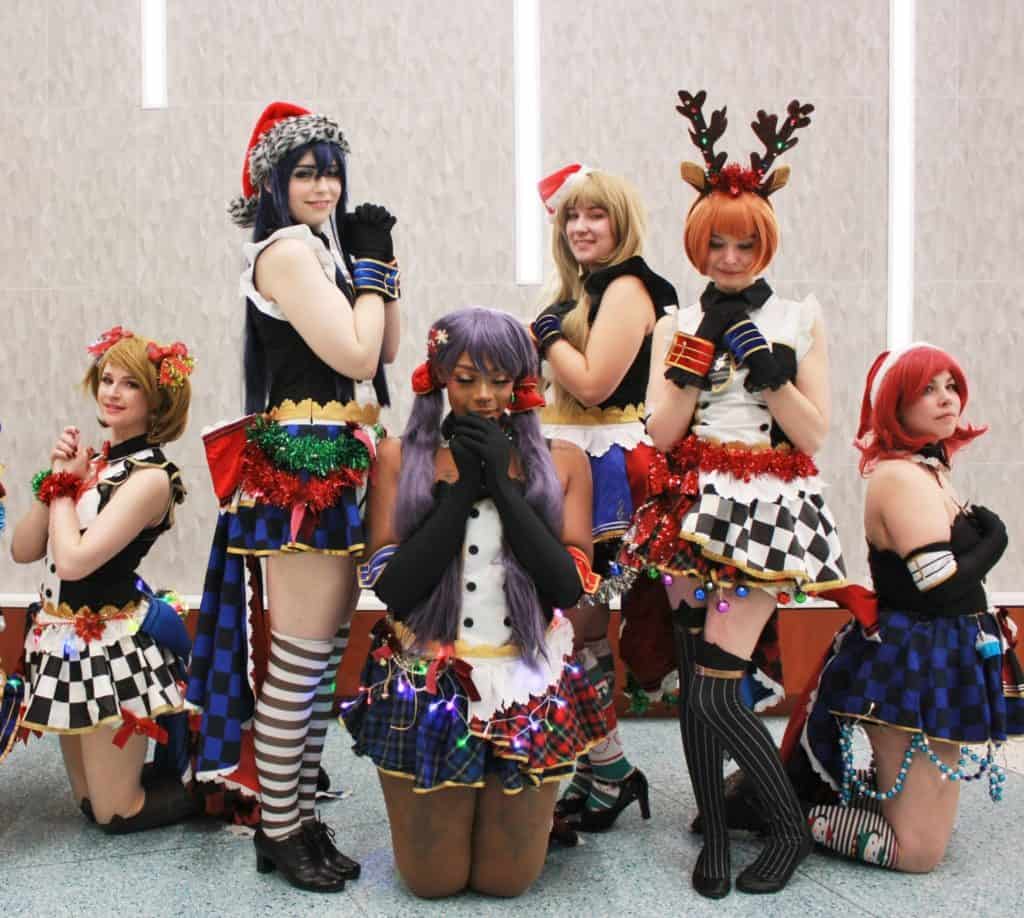
This is based on my own experiences. The Cosplay Community loves to talk about negative incidents. Which is fine because we all want to solve the issues going on in the community. But you wouldn’t believe how many random acts of kindness from cosplayers that I’ve witnessed and experienced.
Once I was at a comic convention and randomly chatted with these cosplayers. I was pretty hungry because I didn’t eat for the whole day. So as I was about to go buy overpriced food at the convention, when out of nowhere one of them said, “Hey would you like some of this poutine we bought? You can have it!” It was a nice gesture because I’m a sucker for poutine! But she also said, “That’s how we are. We cosplayers take care of each other.” And I totally agree with her.
The funniest story – I was about to do a Fire Emblem photoshoot at a small convention. Since I hadn’t worn my Marth costume in a long time, my wig was pretty off in terms of styling. But out of nowhere again, this random girl (at the time) came up to me and said, “Hey, I can help fix your wig and style it for you!” I gladly accepted. Needless to say, she did a fine job styling and cutting my wig for the shoot. The photos turned out great!
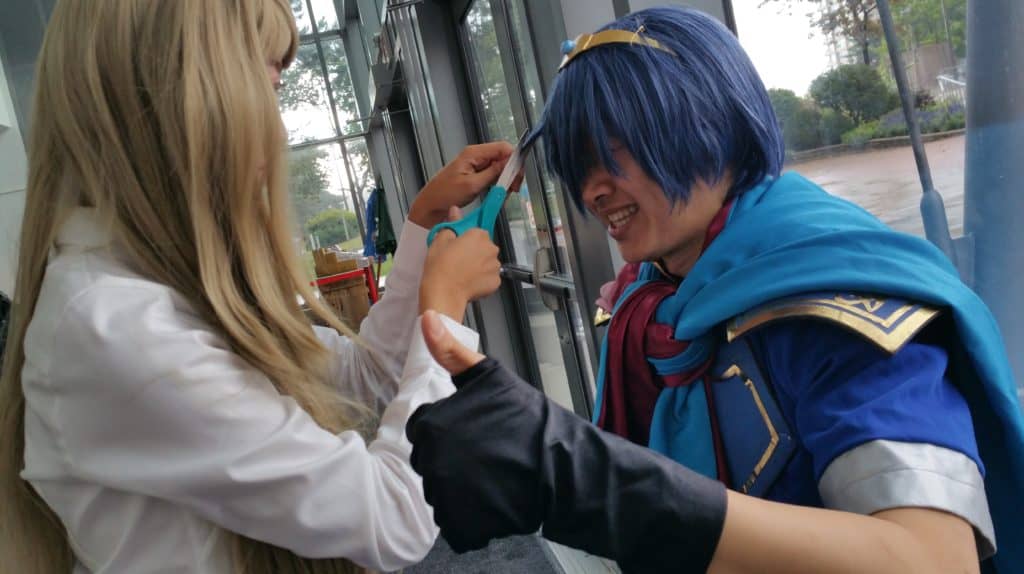
And I’ve lost count how many times various cosplayers helped me out during a cosplay event. I don’t expect it, but I’m always thankful for what they do.
And I take care of the cosplayers in my community. Not trying to toot my own horn, but I’ve had a lot of people thank me for what I’ve done as a cosplay organizer. And a lot of people come to me for advice, and hopefully that helps them as well. As long as people treat me with respect, I do the same for them and they definitely appreciate it.
We’re called the Cosplay Community for a reason – we take care of each other!
6. We Create New Opportunities
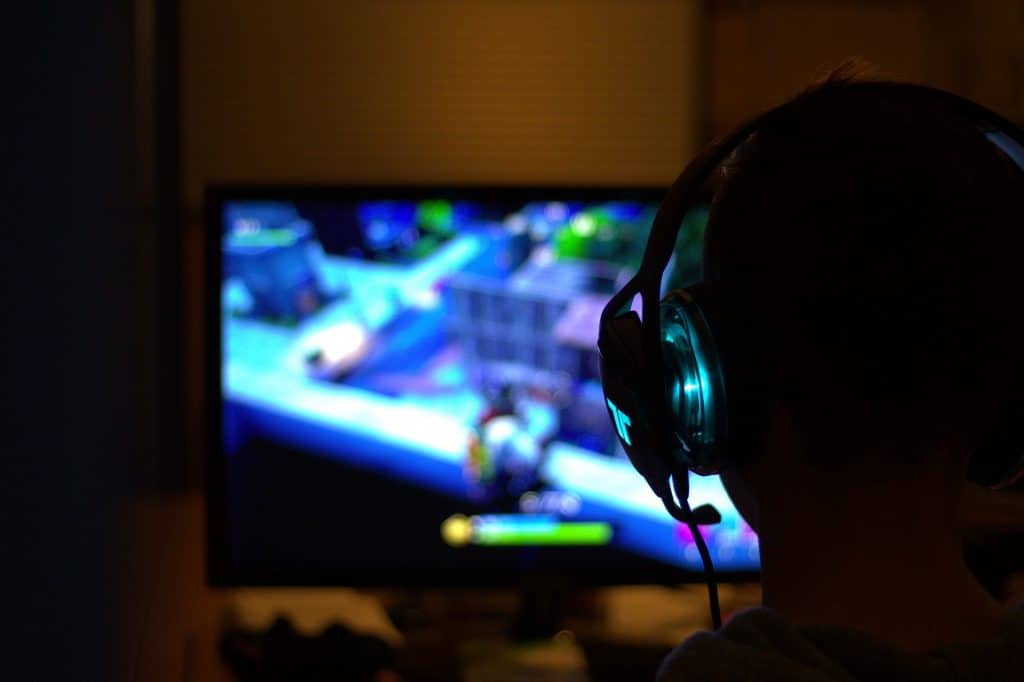
Cosplay is a huge industry today. And because cosplay has become popular, it has opened new opportunities for many individuals. Think of all the cosplayers who are very successful with Patreon, YouTube channels, Twitch streaming, cosplay sponsorships for companies, modelling cosplay websites and much more. For some, cosplay is their full-time gig and now it’s possible to turn your cosplay passion into a real job. Look at all the geek and gaming bars popping up in large North American cities today; there is a huge market now.
And that’s just getting started. Cosplay is a big business now: you have promoters, costume-makers, suppliers and more. IN short, “Cosplay can be a new business field for any aspects.” (Timothy, E., and Z. Hidayat. “Cosplay in Indonesia: It’s Not Just Cosplay, It’sa Business Opportunity.”)
None of these things would have been possible like 10 years ago. And I believe the Cosplay Community has mainly contributed to this.
7. We Made Being Geeky Acceptable
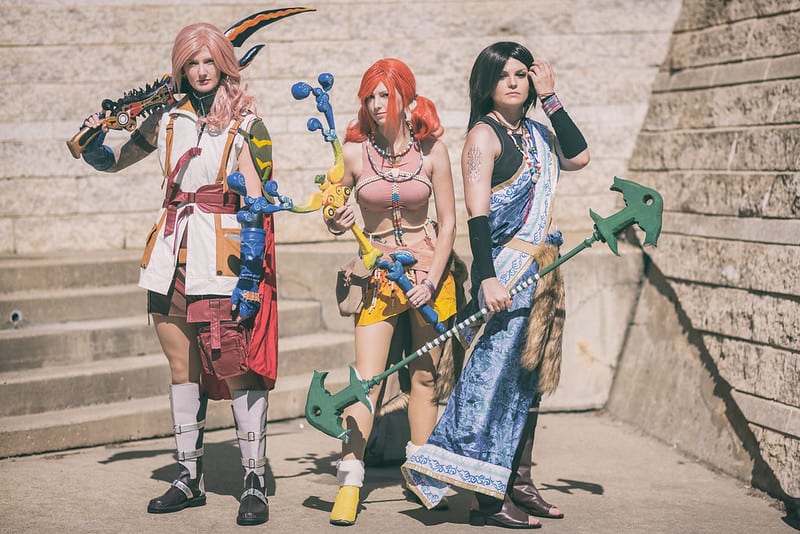
I’d say up until the late 2000s or even early 2010s, it was socially unacceptable to be a geek or nerd. You were definitely looked down upon by a majority of society if you labelled yourself a geek. I remember many (including myself) hiding the fact that we love video games, for example. This was before cosplay and Anime conventions were mainstream.
There was one notable occasion, when Fan Expo announced in 2013 they were adding a sports section to their convention. I could remember the hysteria after that announcement; a lot of the attendees were scared of the new people that would attend. Many thought: Big, buffy sports guys attending geek convention = Nerd and Jocks clashing at each other, just like you see in every high school*. This spoke VOLUMES about the divide been geeks/nerds and the rest of society.
But fast forward to 2021 today. Cosplay is mainstream and a huge market.
Anime conventions take place in many part of the world, especially North America. Geek-related products are ubiquitous now. So being a geek is actually cool and acceptable now (for the most part)! Celebrities love to tweet or post their nerdy pleasures. It’s okay to openly profess your love for video games, or how you love Pokémon or World of Warcraft. Who made this possible? Cosplayers of course. 😉
Although the Cosplay Community isn’t perfect by any means, it’s still a place that many flock to. Why? Because the Cosplay Community is well-known for being “a uniquely tolerant space, full of accepting members who shared the same values.” (Mason-Bertrand, Adele. Cosplay: An Ethnographic Study of Subculture and Escape. Diss. University of Sheffield, 2019.)
(*In the end, fights didn’t break out at Fan Expo and everything went fine with the sports section that year. But the organizers did scrap the idea for future conventions. From what I heard the sports section wasn’t very popular with attendees, not surprisingly.)
8. Not everyone cosplays in the Cosplay Community

*shocked Pikachu face*
Yes, just because it’s called the Cosplay Community, it doesn’t mean everyone dresses up. In fact, there are so many people involved in community aside from cosplayers, including:
- Photographers
- Costume creators
- Make up artists
- Friends of cosplayers
- Anyone involved in organizing a cosplay convention
- Event venues (e.g. See-Scape)
This also answers the question if you need to cosplay in order to attend a convention. Of course, the answer is no. But if you wanted some detailed reasons why you don’t need to dress up to attend a con, check out my article here about it.
9. How you can enjoy being in the Cosplay Community without the toxicity

Just because there are toxic people in the Cosplay Community (or any subculture really), it doesn’t mean you have to tolerate that kind of negative behaviour.
Here are a few ways you can enjoy cosplaying without the toxicity:
- Set your boundaries. Know what you’ll put up with and what your standards are. Let people know your boundaries and that everyone needs to respect them.
- Pick and choose who you associate with. They say you truly are the company you keep. So pick and choose who you want to hangout with. Of course, it’s always hard to tell if a person will treat you good or not from first impressions. But you can always cut off or disassociate with someone that’s not going to be treating you well.
- Be extra kind and accommodating to people in the Cosplay Community. The Cosplay Community is very diverse, some who are excellent people while others can struggle with mental health issues. So do try to be accommodating and understanding to those in need. They’ll return the love at some point as well!
10. The Cosplay Community is Making the World a Better Place

Don’t forget that cosplayers are very generous as well. There are dozens of cosplay charities that exist around the world, including The 501st Legion, Costumers for a Cause and Cosplay for a Cure (located in my hometown of Toronto). Not only do cosplay charities donate for good causes, the cosplayers themselves attend to kids in hospitals – in costume! They role-play their favourite characters and give them joy and happiness during their time in the hospital.
As the Cosplay Community becomes more popular and larger, it will enable us to create better for the world, starting with the previous 9 reasons I listed above. The Cosplay Community will push for more tolerance. For more charitable causes. For more diversity. And for a right to safety. And for more opportunities and improvement for everyone!
Summary
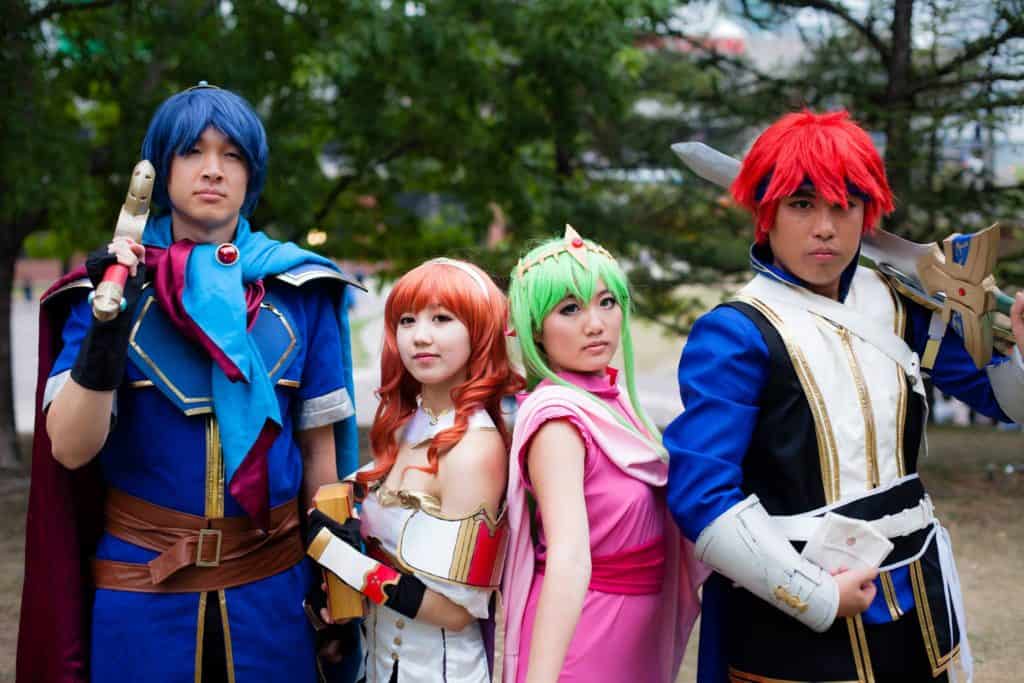
To summarize, here are 10 facts about the Cosplay Community:
- The definition of the Cosplay Community
- Is the Cosplay Community toxic?
- The Cosplay Community is VERY diverse
- We bring in the cash!
- We take care of each other
- The Cosplay Community creates new opportunities
- The Cosplay Community made being geeky acceptable
- Not everyone cosplays in the Cosplay Community
- How to enjoy being in the Cosplay Community without the toxicity
- The Cosplay Community is Making the World a Better Place
What’s the point of this post?
To show that just like any other subculture, you cannot easily categorize everyone in a community. Especially cosplayers. We tend to focus on the famous cosplayers who are hungry for power and fame, and do bad things to get to the top. Whereas a large majority of cosplayers are just good, ordinary people trying to have fun indulging in their geek hobby.
Is the Cosplay Community perfect? Of course not. There are troublemakers, toxic people in the community, and the Cosplay Community is filled with all sorts of problems. But there are also great people in the Cosplay Community who do wonderful things and have good intentions.
What are your thoughts on the Cosplay Community? Let me know in the comments below!

My name is Roger Senpai. I’m a cosplayer that’s been in the community for well over a decade now. I’ve traveled all over the world to Anime and Comic conventions and hosted my own cosplay events. Now I’m writing articles for new and experienced cosplayers like you to help inspire, save you money and improve your cosplays!

